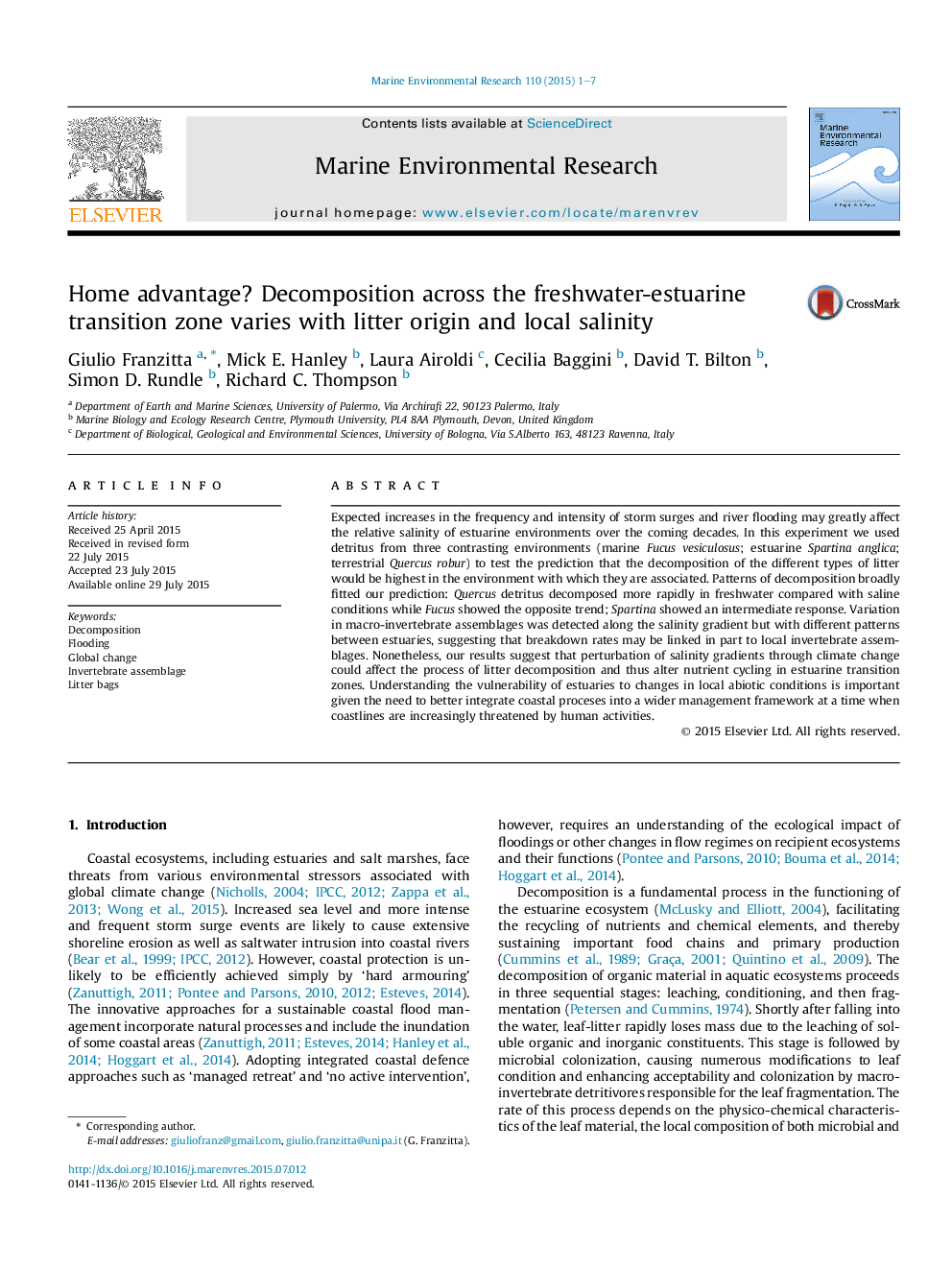| کد مقاله | کد نشریه | سال انتشار | مقاله انگلیسی | نسخه تمام متن |
|---|---|---|---|---|
| 6387629 | 1627572 | 2015 | 7 صفحه PDF | دانلود رایگان |
- We explored the detritus breakdown rates of Q. robur, S. anglica and F. vesiculosus across the salinity gradient in estuaries.
- We also examined the composition of the associated invertebrate assemblage.
- We found opposite trend of breakdown rates of Quercus and Fucus detritus along the salinity gradient.
- The invertebrate assemblage varied along the salinity gradient but do not change among detritus types.
- These results are useful to understand the potential vulnerability of estuarine systems to the impact of flooding events.
Expected increases in the frequency and intensity of storm surges and river flooding may greatly affect the relative salinity of estuarine environments over the coming decades. In this experiment we used detritus from three contrasting environments (marine Fucus vesiculosus; estuarine Spartina anglica; terrestrial Quercus robur) to test the prediction that the decomposition of the different types of litter would be highest in the environment with which they are associated. Patterns of decomposition broadly fitted our prediction: Quercus detritus decomposed more rapidly in freshwater compared with saline conditions while Fucus showed the opposite trend; Spartina showed an intermediate response. Variation in macro-invertebrate assemblages was detected along the salinity gradient but with different patterns between estuaries, suggesting that breakdown rates may be linked in part to local invertebrate assemblages. Nonetheless, our results suggest that perturbation of salinity gradients through climate change could affect the process of litter decomposition and thus alter nutrient cycling in estuarine transition zones. Understanding the vulnerability of estuaries to changes in local abiotic conditions is important given the need to better integrate coastal proceses into a wider management framework at a time when coastlines are increasingly threatened by human activities.
Journal: Marine Environmental Research - Volume 110, September 2015, Pages 1-7
